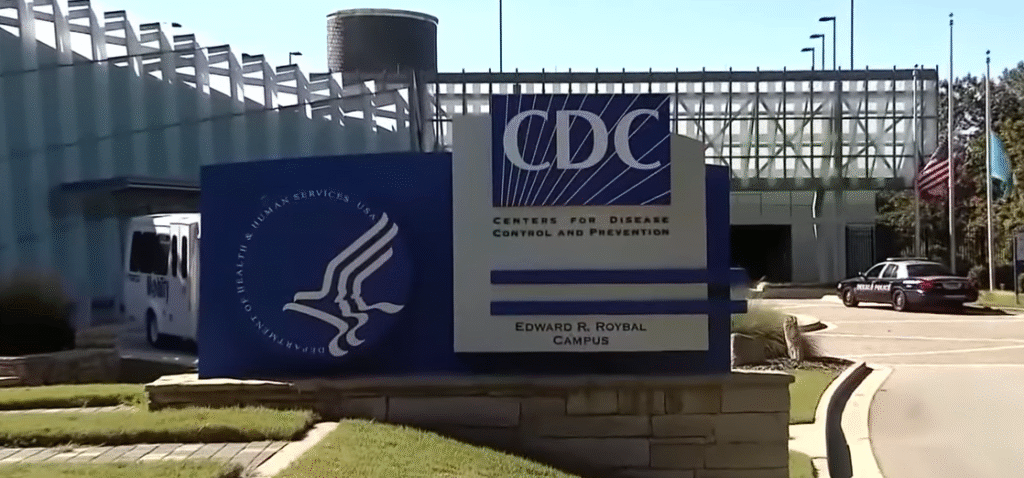Once regarded with almost unquestionable authority, the CDC is now defending itself in courtrooms as its credibility is scrutinized in detail. Supported by Stand for Health Freedom, doctors Paul Thomas and Kenneth Stoller have charged the agency with creating a “shadow mandate” through its childhood vaccination program. Their claim that recommendations become legally binding once states enact them, leaving families with no real choice, is remarkably similar to arguments that have long been made by vaccine skeptics.
The lawsuit is both personal and professional for Thomas, a pediatrician from Oregon who lost his license after publishing contentious research that suggested vaccinated children had worse health outcomes. He portrays himself as being unjustly punished for posing awkward queries. Stoller presents himself as a whistleblower attempting to draw attention to what he perceives to be a concerning lack of long-term safety studies. Stoller gave up his California license after issuing an excessive number of exemptions. Despite harsh criticism from mainstream scientists, their stories speak to parents who are growing more wary of medical authority.
The case has expanded beyond vaccines thanks to incredibly adaptable legal tactics. The CDC was accused in another lawsuit earlier this year by Doctors for America of removing important public health information from its websites, which severely limited doctors’ capacity to make well-informed treatment decisions. A federal judge ordered the data to be restored, citing the extraordinary significance of transparency. In addition to confirming the plaintiffs’ worries, the verdict demonstrated how data suppression, even if it is only temporary, erodes trust in public health organizations.
Personal and Institutional Information
| Name | Centers for Disease Control and Prevention (CDC) |
|---|---|
| Headquarters | Atlanta, Georgia, United States |
| Founded | July 1, 1946 (as Communicable Disease Center) |
| Director (2025) | Susan Monarez |
| Jurisdiction | Federal government of the United States |
| Primary Role | National public health agency, disease prevention, health promotion, research |
| Legal Challenges | Lawsuits on vaccine schedule, removal of health data, FOIA office closure |
| Reference | CDC Official Website |

Another layer of complexity has been added by FOIA disputes. After the CDC’s FOIA office ceased processing requests and substituted automated rejection messages for responses, Citizens for Responsibility and Ethics in Washington (CREW) filed a lawsuit against the agency in April. This felt to journalists, researchers, and advocacy groups like a purposeful suppression of public inquiry rather than merely a bureaucratic hold-up. The CDC unintentionally validated critics’ suspicions that it values secrecy over accountability by eliminating the standard channels of oversight.
This trend is not wholly novel. The White House’s decision to bar CDC scientists from public speaking during the pandemic was described in court documents as “remarkably effective at controlling messaging but deeply damaging to credibility.” These disclosures brought to light the expanding nexus of politics, law, and science, which was further heightened by lawsuits from American Oversight and the Knight First Amendment Institute. Every case strengthened the idea that the CDC has become less transparent just when confidence is most needed.
It is impossible to overlook cultural context. Once mostly relegated to the periphery, vaccine skepticism has been significantly heightened by public figures and celebrities. Robert F. Kennedy Jr.’s ascent to the position of Secretary of Health and Human Services has brought skepticism from Hollywood stages to federal policy, while Jenny McCarthy’s early assertions regarding autism left a lasting impression. While his supporters praised his decision earlier this year to remove some COVID vaccines from the CDC schedule for healthy children and pregnant women, prominent medical associations condemned it as reckless. Lawsuits have already been filed against that decision, highlighting the connection between policies and personalities.
The effects on the general public are obvious. Parents who used to rely on pediatricians’ assurances now read conflicting messages on social media. There are now vulnerable areas in a number of states where kindergarten vaccination rates have dropped below herd immunity thresholds. The resurgence of measles outbreaks serves as a stark reminder of what occurs when confidence erodes. Even though vaccines are still incredibly effective at preventing disease, the legitimacy of those who advocate for them has significantly declined.
A deeper query is also brought to light by the lawsuits: what does accountability mean for a scientific organization? The slower, more cautious consensus of peer-reviewed science or the standards of evidence used in court should be used to evaluate the CDC. Plaintiffs believe that the only way to compel reform is through litigation. Defenders caution that using courts as a weapon against medical facilities runs the risk of destroying systems that, in spite of their shortcomings, are still very effective at preventing illness. Both points are valid, and the courts now have to decide where governance and science diverge.
Parental anecdotes have a powerful emotional impact on the court cases. Advocates point to school restrictions, fathers recall developmental regressions, and mothers testify about their children’s seizures. Their inclusion in lawsuits guarantees that these experiences become part of the official record, regardless of whether they are causally related to vaccines. Lawsuits draw public attention through these narratives rather than data visualizations. In this way, the legal battle is similar to a cultural trial, where trust is just as important as the evidence.
Therefore, the CDC faces a reputational as well as legal challenge. Even when cases are dropped, each lawsuit feeds stories about secrecy. Because the headlines themselves continue to linger in the public consciousness, being sued can be nearly as damaging in today’s public life as being found guilty. The CDC is witnessing what Gwyneth Paltrow and Elon Musk, among other celebrities, have long understood: that legal spectacles have the power to redefine identity in ways that results alone cannot.

